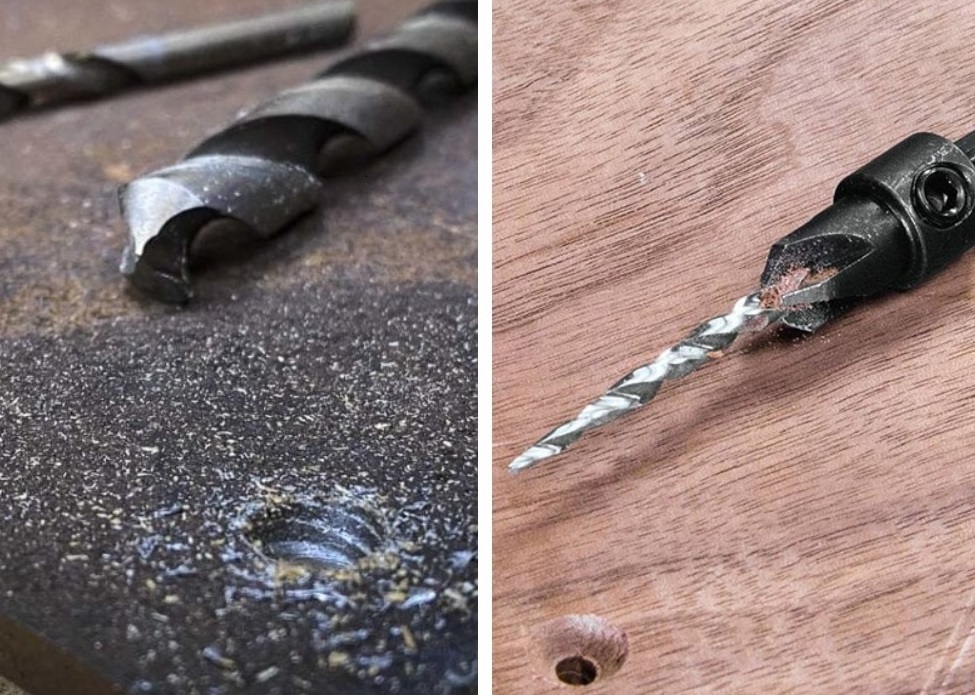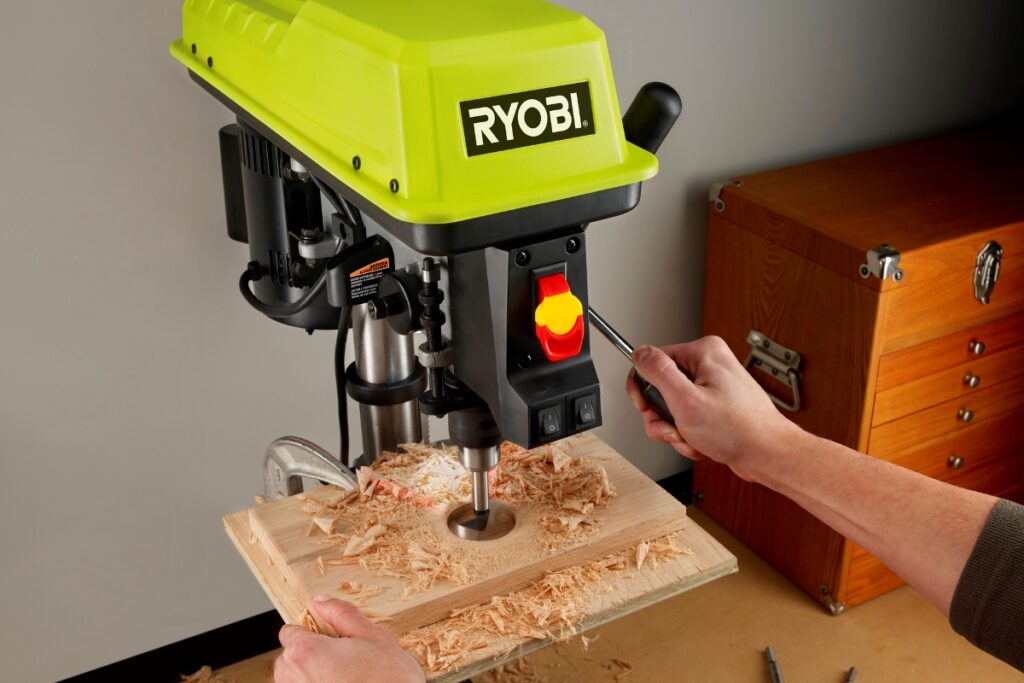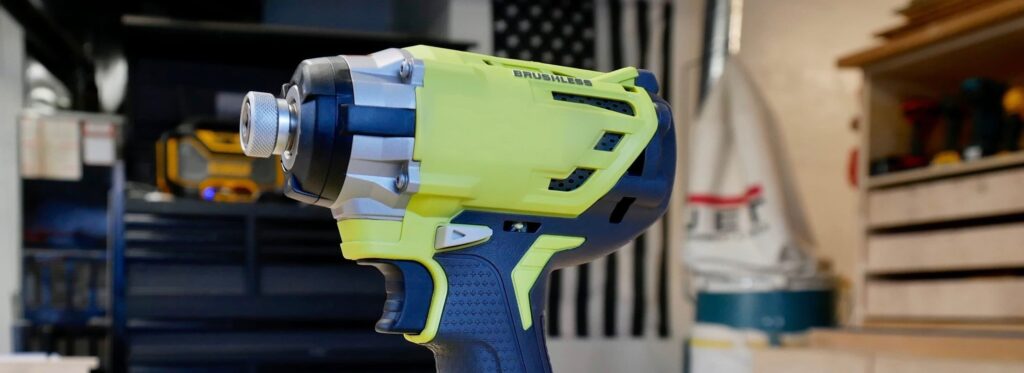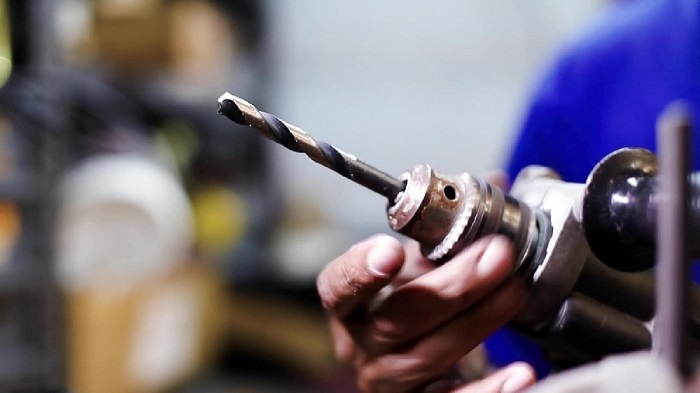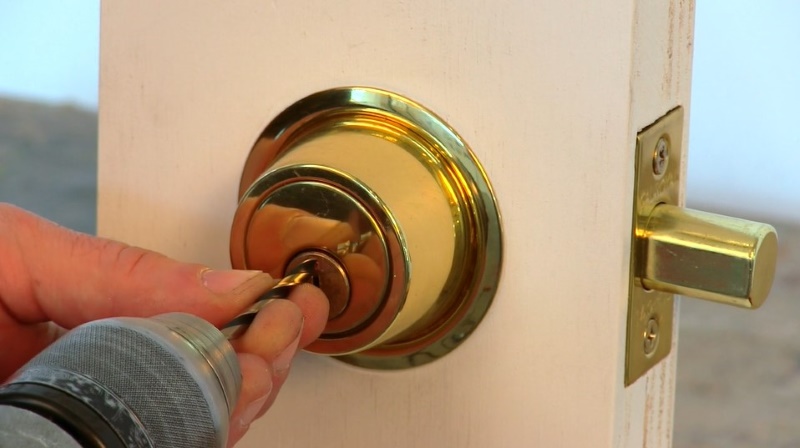Power drills are excellent tools that everybody should have in their tool kit. However, there are lots of drills on the market, and sorting through them can be challenging. For example, you might have heard of a corded vs. cordless drill. You might have a vague idea of what they are, but you don’t really know the difference between them. And if you’ve never had to use either one, you won’t know that they can be quite different from each other.
We’ll tell you all about the pros and cons of each kind of drill so you can make an informed decision about which one is right for you. Of course, buying one of each kind is always an option, but there’s no need to do that if one kind can cover your requirements just fine. Let’s dive right in.
If you’re in need of a new power tool such as a drill, there are a lot of options out there. Whether you’re looking for a corded vs. cordless drill depends on the type of project you’re working on and the kind of working space you have available.
Corded drills can’t be used anywhere because they require a power outlet to run. However, they allow you to work for as long as necessary because you don’t have to worry about a dead battery. On the other hand, cordless drills can give you more freedom and mobility while working on projects. The downside, of course, is the limited battery life. You’ll need to carry spares with you if you want to keep working beyond the battery’s capacity.
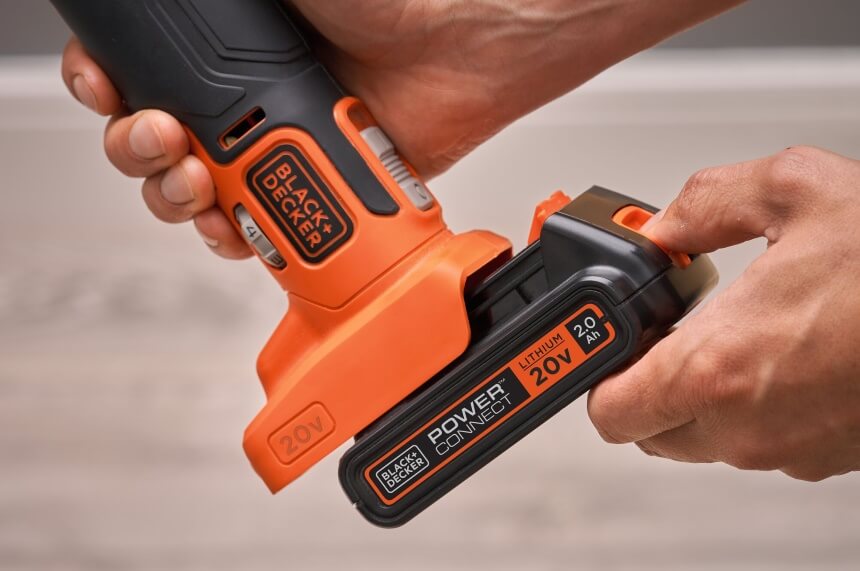
Corded drills are generally more powerful and have more torque than cordless drills. That’s because corded units can deliver a consistent flow of power; the motor is connected directly to the wall socket. Since there’s no battery to limit its capacity, a corded drill can run at a set speed for longer periods of time without running out of juice. It also offers higher torque even if has a lower max RPM.
A cordless drill, on the other hand, relies on a rechargeable battery for power. As such, it’s designed to help you finish the job as quickly as possible before the battery dies. You’ll find that even the best cordless drills under $100 boast a higher maximum RPM rating than their corded counterparts but at the cost of lower torque.
There’s always an entire discussion revolving around corded vs. cordless drill torque, and it could make your head spin if you’re a newbie. A good rule of thumb to remember is that the two are inversely related: as one goes up, the other goes down. In other words, the more torque you want, the less RPM rating you’ll get, and vice versa.
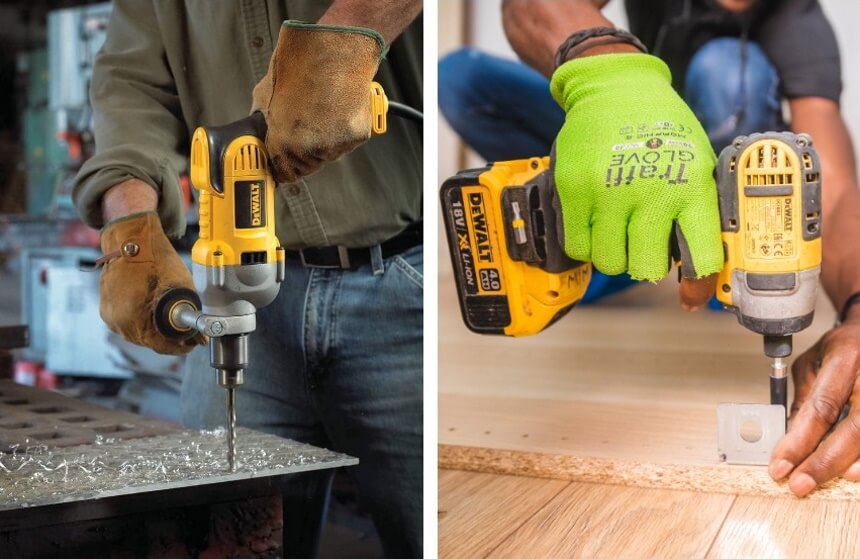
Now that you’ve compared the corded vs. cordless drill torque, you can consider each type’s performance. As mentioned earlier, corded drills perform better than cordless ones because they don’t lose power when they’re running. As a result, they can work on harder and thicker surfaces while still producing a constant result. This means you can use them for bigger, more serious projects that require more time and effort.
Cordless drills are better at providing an initial burst of power but at diminishing results. Constantly using the drill at its maximum speed drains the battery quicker, even though it technically also saves you time. They’re ideal for quick and small projects around the house, such as building a kitchen counter or fixing a cabinet door.
Maintaining a power drill, regardless of whether it’s corded vs cordless hammer drill, is pretty much the same. Because they’re both drills, you need to make sure you clean them thoroughly after every use.
Your tool also encounters a lot of dust and debris while it’s working, so it’s important to brush those off to prevent problems later. You also need to make sure you store them properly, so they’re always in tip-top shape whenever you need them. The last thing you want is to find a stack of junk heaped on top of your beloved power drill.
The lifespan is when we start seeing differences between them. In theory, a corded drill can last for several years as long as it’s properly maintained before and after every use. That means proper lubrication and cleaning, along with sensible storage. Any corded drill, regardless of age, should function properly whenever it’s plugged into a power socket.
Applying the same concept to a cordless drill doesn’t quite work because it’s limited by the battery life. And no, we’re not referring to how many hours it can last; we’re referring to how many charges the battery can take before it starts deteriorating. A drill battery usually lasts about 3 years before needing a replacement, and you’re likely to encounter lower performance along the way as the battery gradually loses capacity.
So while you can say that the best cordless drills can last a lifetime, you’re technically limited by your battery’s maximum life.
Your power tool’s durability depends largely on how you use it. Even the most inexpensive power drills can last a long time if you maintain them properly.
The only dividing line between a corded vs cordless drill’s durability is the quality of its attachments. And for cordless drills, that includes the battery again. If the drill’s battery is constantly losing power, you could be causing damage to your drill bits as you try to push it further with decreasing power. And even if you do have a corded drill, it’s not going to perform well if it doesn’t have a set of bits made from high-quality materials such as high-grade carbon steel.
Again, the best way to increase the durability of your tool is to clean and maintain it well.
Both kinds of power drills are easy to use, though not quite straightforward. A rudimentary knowledge of drilling terminology is needed so you don’t feel lost whenever you’re reading about them. As long as you have a pair of puncture-resistant gloves for safety and a grasp of the general concepts of drilling, you’re good to go.
Inexpensive drills normally only have a one-speed setting, but more expensive models can have two or more. Some of them even allow you to set the clutch and torque manually, but these models are for users who want to be more involved with their tools. These features are the same regardless of whether you have an older corded drill or one of the best cordless Hammer drills.
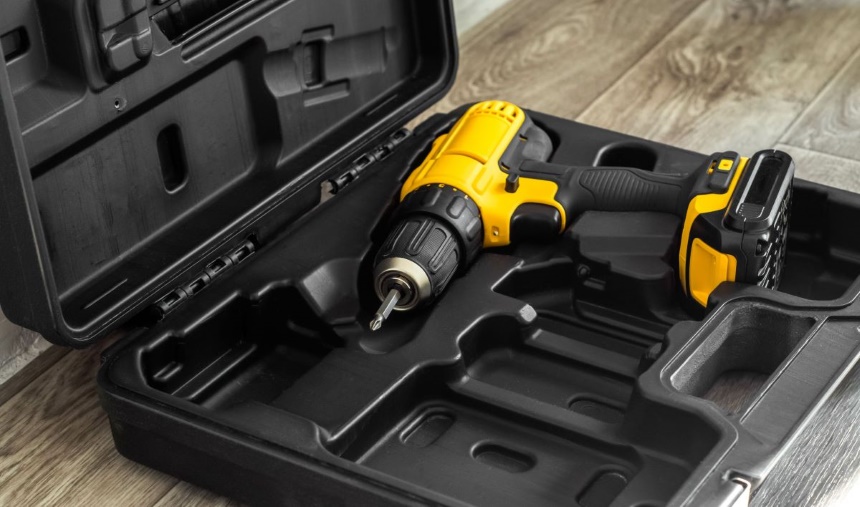
A majority of the corded vs. cordless drill debates get settled when discussing their portability. That’s because each one has distinct advantages depending on how you intend to use them.
At a glance, cordless drills definitely win the portability trophy. They’re not bogged down by cords, and you can bring them anywhere. They enable you to work in tight spaces whenever you want. They’re also easy to store; simply put them back in their holding case, and you’re done. Cordless drills are the very definition of portability.
However, some things had to be sacrificed in order to achieve that convenience. By getting rid of the power cord, you’re now limited by battery life. And by having a limited battery life, you don’t get to enjoy its power as much as the corded ones. You’re out of commission until the battery is fully charged again.
On the other hand, corded drills may not be able to go as freely as cordless drills do, but they can work for longer and more consistently. As long as you have some sort of power outlet – whether from a wall or from a portable power generator – you can work on a project for as long as you want.
Comparing corded vs. cordless drill prices show that they cost pretty much the same. As long as you don’t need a lot of special features, you can get either a corded or cordless drill for less than $30. And as the extra features and accessories increase, so does the price.
While the cost upfront seems to be the same, the lifetime cost of corded vs cordless hammer drills is vastly different. Cordless drills, as you may have already guessed, have the additional cost of replacement and spare batteries every few years. Corded drill owners don’t have to worry about this.
Corded drills have been around for over a century Trusted Source 100 Years of Innovation: History of the Electric Drill | Electrical Contractor Magazine TWhile these tools have changed radically over the years, certain design elements have remained the same. www.ecmag.com now. The current form we’re all familiar with – portable and handheld with trigger-style speed control – was first patented in 1914 Trusted Source S. Duncan Black & Alonzo G. Decker Sr. Black and Decker-the names are revered by craftsmen and tool users the world over, from professional construction workers to weekend do-it-yourselfers. www.entrepreneur.com by Samuel Duncan Black and Alonzo Decker (namesakes of the Black + Decker brand). Even before their patent, there were already inventions of a motorized drill, though they were too big for a one-handed operation.
Needless to say, corded drills have been around for a while. Not much has changed since then, aside from better and more powerful motors. More features may have been added over the years but its appeal stayed the same: it can run for as long as you have power.
But this reliance on being plugged in all the time also brought along the need for a cordless drill. Professional contractors had to deal with endless loops of extension cables just to get their drills plugged into an outlet. The entire setup was cumbersome and time-consuming, not to mention the added costs of extension cables.
The introduction of cordless drills in 1961 Trusted Source History Engine 3.0 The article shows the different tools that were cordless in the 1980s and if you walked into any home improvement store that sold cordless tools in the early 2000s there would be more tools available for people to buy. historyengine.richmond.edu by Black + Decker was a game-changer. Contractors were praising how much easier the cordless drill was to use, now that they no longer had to worry about finding a power outlet. They could finish a small job much quicker, allowing them to move on to the next one right away.
And thanks to battery technology advancing further through the decades, cordless drills kept getting batteries with better and longer life. It even got to the point where battery weight decreased as well, lowering the overall weight of the drill and making it easier to use. A power tool is now accessible for budding home DIYs, instead of being exclusive to professionals only.
This advantage, however, is still the main downside of a cordless drill. Even though batteries nowadays can provide more power for longer, they’re not permanent. They will still need replacing every few years, adding to the cost of owning a cordless drill.
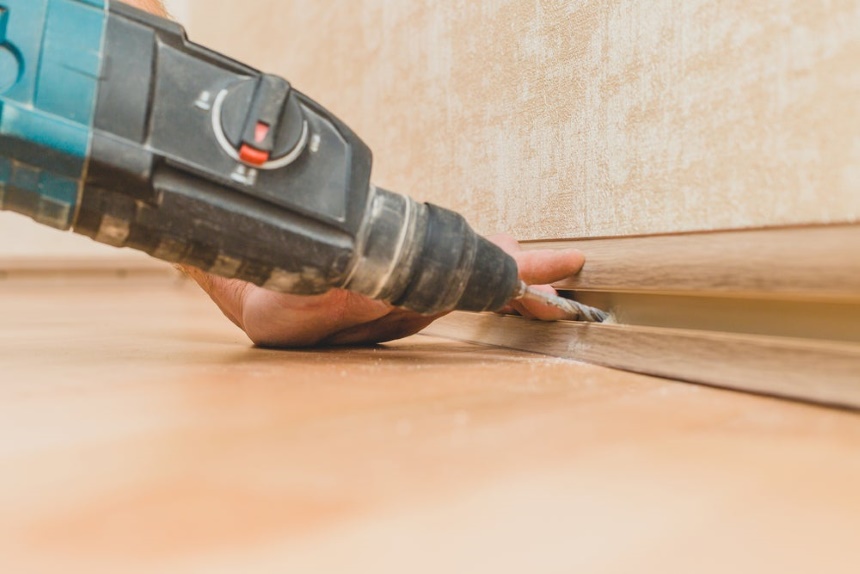
As we’ve examined, corded and cordless drills have distinct advantages and disadvantages over each other. Corded drills, because of their constant and guaranteed power supply once plugged in, can provide more torque and precision. It also enables the user to work on harder materials that take more time to penetrate.
On the other hand, cordless drills allow the user to move freely, thanks to the absence of cords. Their initial bursts of power also give them a leg up with smaller jobs, allowing them to finish quicker with higher RPMs. The main disadvantage, as you’ve already noticed, is the battery. Not only does it add weight but it’s also limited. You can’t work for too long because the battery will deplete, and you’ll have to change the battery as it deteriorates every few years.
With those thoughts in mind, it’s hard to say whether a corded or a cordless drill would be better for you. For most people, a cordless drill is the better option. Most weekend projects are small and can benefit from the burst of power and mobility that cordless drills offer. But for those involved in a trade, the constant source of power from a corded drill is more suitable.
Comparing a corded vs. cordless drill might seem inefficient considering their major similarities, but it can also make the difference between satisfaction and dissatisfaction. Ask yourself: what am I going to use it for? Does the corded vs cordless drill torque matter to you? If most of your answers point to lighter, more casual projects, pick a cordless drill. But if you have a specific heavy project in mind, then invest in a corded drill.
Regardless of what you pick, the most important thing to consider is whether you’ll be happy owning the item or not. Don’t commit to a purchase when you don’t feel completely confident about it. We’ve shown you their pros and cons; now it’s time for you to decide which one has more advantages for you.
